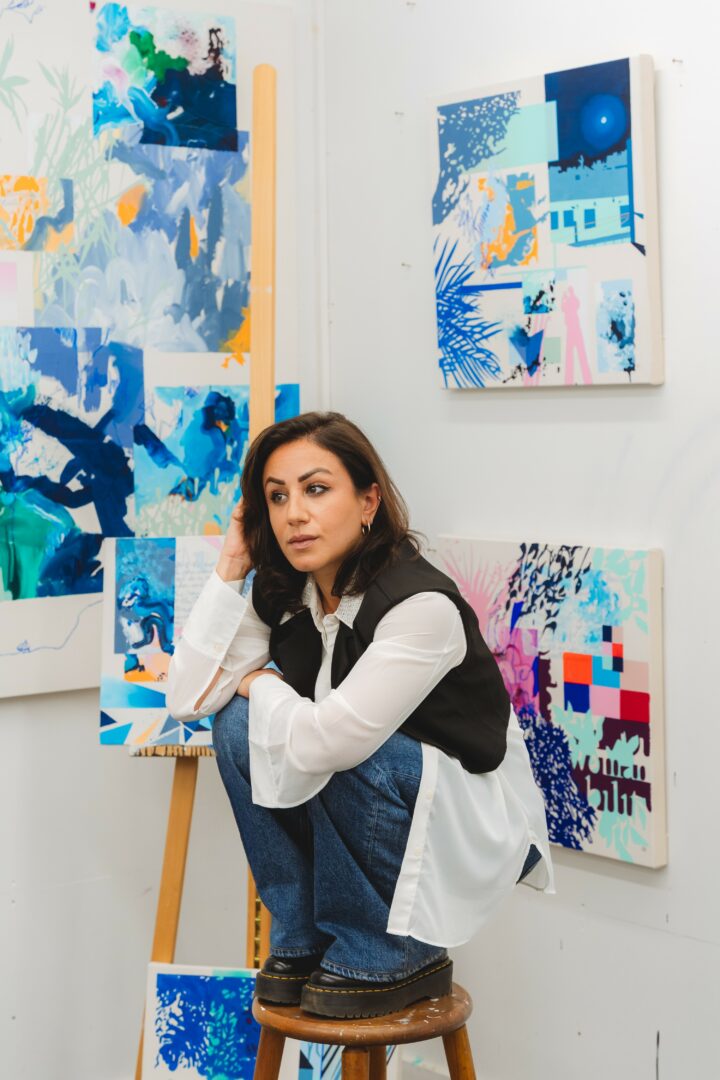We recently had the chance to connect with Tania LaCaria and have shared our conversation below.
Tania, a huge thanks to you for investing the time to share your wisdom with those who are seeking it. We think it’s so important for us to share stories with our neighbors, friends and community because knowledge multiples when we share with each other. Let’s jump in: What is a normal day like for you right now?
I’ve found myself in an unusual period of transition right now – so there’s no such thing as a “normal day”. I recently relocated and that meant giving up my beloved studio space and home, and now I find myself carving out time to create whenever I can during the day – instead of being obligated to a specific routine or dedicated studio time – but more importantly, I find myself having to carve out SPACE to create in. Sometimes this means sketching at a cafe, writing poetry in my journal literally anywhere that I happen to be, or popping up a makeshift studio space in my parents’ basement to complete a last minute commission. The “normal” these days looks more like being flexible and open to going with the flow – and there’s something very exciting about flipping “normal” on its head for a little while…inspiration strikes in different ways, now.
Can you briefly introduce yourself and share what makes you or your brand unique?
My name is Tania LaCaria. I’m a visual artist, storyteller and creative mentor. I specialize in large format abstract painting and found-object sculpture; and I accompany my visual works with poetry for added context. I’ve decided that my purpose in life is to make meaningful connections with others and my mission in life is to do that through my art…I used to think that sharing the poetry I create alongside my work could be interpreted as an attempt to over-explain my intentions, but then I realized that my poetry adds more meaning to my work (which is mostly conceptual and abstract) and that helps others make a connection to both me and my art – which is ultimately the goal.
I don’t know if there’s something unique or special about me and my art – I’m a very lucky human to be living this exciting journey and having the opportunity to make art along the way – I think every artist is playing the same game, but how we choose to play is what makes us different. For me, I’ve come to appreciate that how my creative process unfolds is unique to me, and that’s all I need to honour, for myself, in order to judge my work as “unique”. I’m not concerned with being perceived as different or interesting to anyone who’s watching. I make my art for me, because I have to, and if it seems meaningful to anyone else who’s watching, that’s great. I’ve learned that being authentic in my expression has always benefited me in my practice. Incidentally, leaning into a form of “authentic expression” for me has resulted in the development of my “style” – which I still cannot pinpoint myself, but others seem to be able to identify in my paintings. If there’s any one thing that makes my approach to my work unique, it’s that my art is coming from an unedited, genuine place of expression. I’m not worried about pandering to the aesthetics that could potentially be more easily digested by the masses – or more sellable. My art is not meant to be for everyone – and I talk about the importance of this with my mentorship clients often – exploring an idea or challenging a belief I have through painting or sculpture helps me release, surrender or embrace and succumb. If this results in a unique form of expression, I’m happy about that, but I’m more excited about the process and the journey being unique FOR ME than the final product or outcome appearing unique to others.
Okay, so here’s a deep one: What did you believe about yourself as a child that you no longer believe?
As a child brought up in an Italian-Canadian family, raised in a Catholic school system, I was taught that hard work pays off, and I was rewarded with praise for being a good kid, for getting good grades, for demonstrating how agreeable and “easy going” I was. I believed that as long as I was receiving praise and staying out of trouble, I was a good person. Because other people told me I was.
I believed that challenging the beliefs or actions of others I disagreed with made me a bad person who caused trouble (and no one likes a little girl who causes trouble).
I liked being “liked”, so I learned to keep the peace, and I thrived off of compliments about my appearance and my good grades and my good behaviour.
Now, as a recovering perfectionist and as a reformed people-pleaser, I know that I’m worthy and deserving of happiness and love just because. I don’t have to be performing on my best behaviour to be liked – especially not when it calls for me to abandon parts of myself in order to keep the peace.
I’ve learned that I AM good, I AM worthy, I AM capable, but not because I’m trying to be for the benefit of others, but because I simply am.
What did suffering teach you that success never could?
Suffering taught me so much – I’ve never learned a single lesson from success, even though success is what’s celebrated. Success is a benchmark for having reached a goal but suffering is where growth and opportunity comes from, it’s where life experience is built and those experiences contribute to eventual “success”.
That being said, suffering has taught me who I really am. I’ve learned, through hardships that have caused me suffering, that I am incredibly resilient, determined and positive, even in the throws of diversity. I’ve also learned that I can be petty, dismissive, and easily frustrated – suffering brings about some heavy realizations and I’ve embraced the reality that not all revelations are pleasant. But ironically, knowing what my shortcomings or weaknesses are has helped me lean into a deeper sense of self-love. I used to think that self-love means being the person you WANT to be and loving her – now I’ve learned, through different forms of suffering – that I love myself in spite of my shortcomings, because all parts of me, even the unappealing parts, are still ME. And I wouldn’t have had the opportunity to get to know the worst parts of me, and the best parts of me, without suffering.
Sure, so let’s go deeper into your values and how you think. Is the public version of you the real you?
I think the short answer is yes, and the long answer is no. Yes, because I’m an open book and don’t feel as though I’m being performative in public, however, as a complex human being (just like anyone else) I think there’s many different “sides” to me, and I don’t reveal all those sides all the time, especially not in public. For instance, I share about my work and art frequently on my social media platforms, and I share openly, and the personality that others are seeing is genuinely me – but I also don’t share much about my personal life, my family, my relationships. Those are things I keep just for me. So, really, the public version of me, at least how it appears on social media, is limited to an expression that only goes so far as I allow it to, within the boundaries of my work and art.
Before we go, we’d love to hear your thoughts on some longer-run, legacy type questions. What are you doing today that won’t pay off for 7–10 years?
I’m staying consistent, I’m showing up for myself and my art, even when there’s no proof that anyone is watching or that anyone cares. I’m grateful that I can make a living from my art, but I’m also aware that nothing is guaranteed and I know this can all end at any point,but I hope in 7 – 10 years I’ll be celebrated for being a professional artist and storyteller in a way that I can’t even predict or imagine now. And if that doesn’t happen, I’m ok with that, too.
Contact Info:
- Website: https://www.TaniaLaCariaStudio.com
- Instagram: @tanialacaria
- Facebook: https://www.facebook.com/tania.lacaria
- Youtube: https://www.youtube.com/@tanialacariastudio
- Other: TikTok: @tanialacariastudio
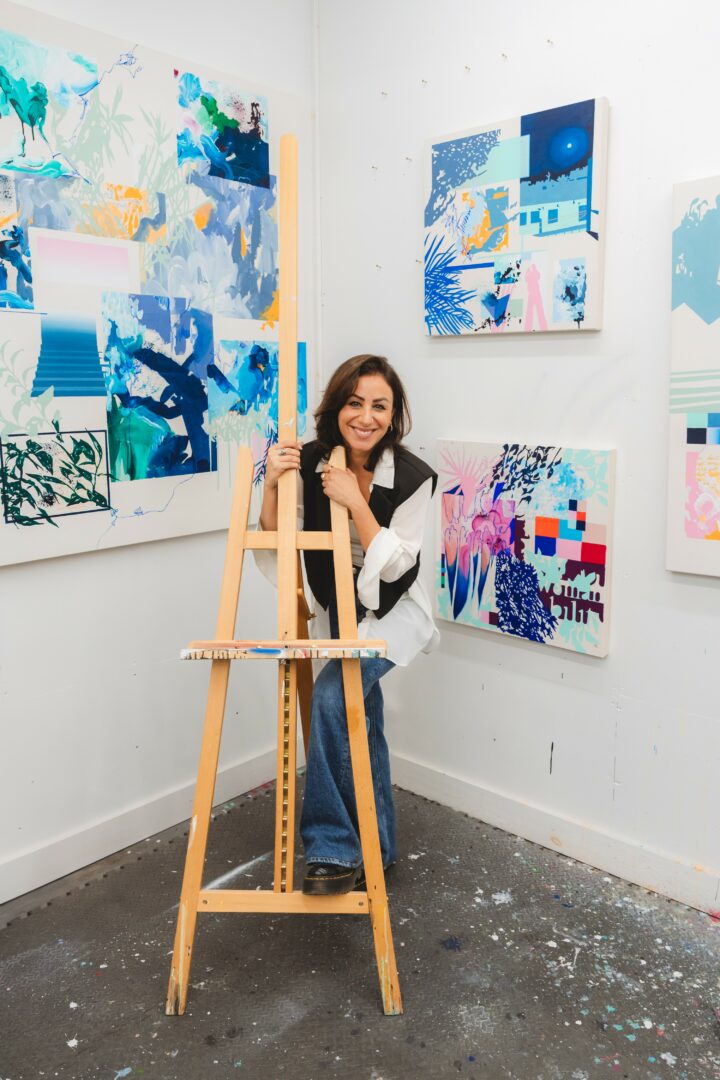
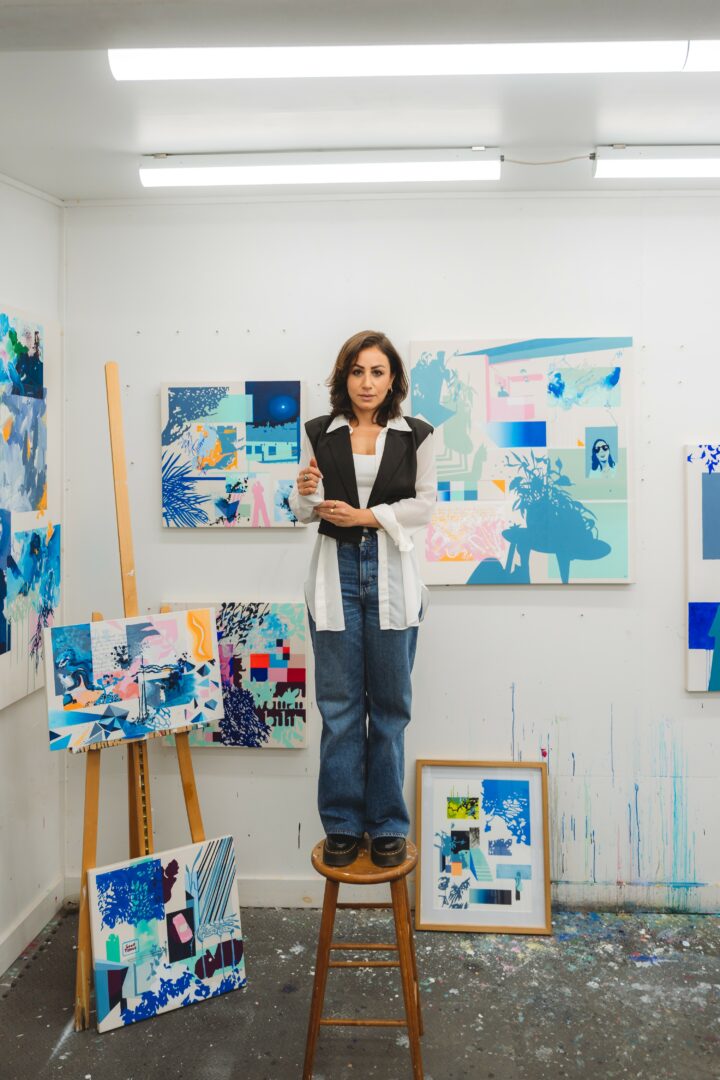
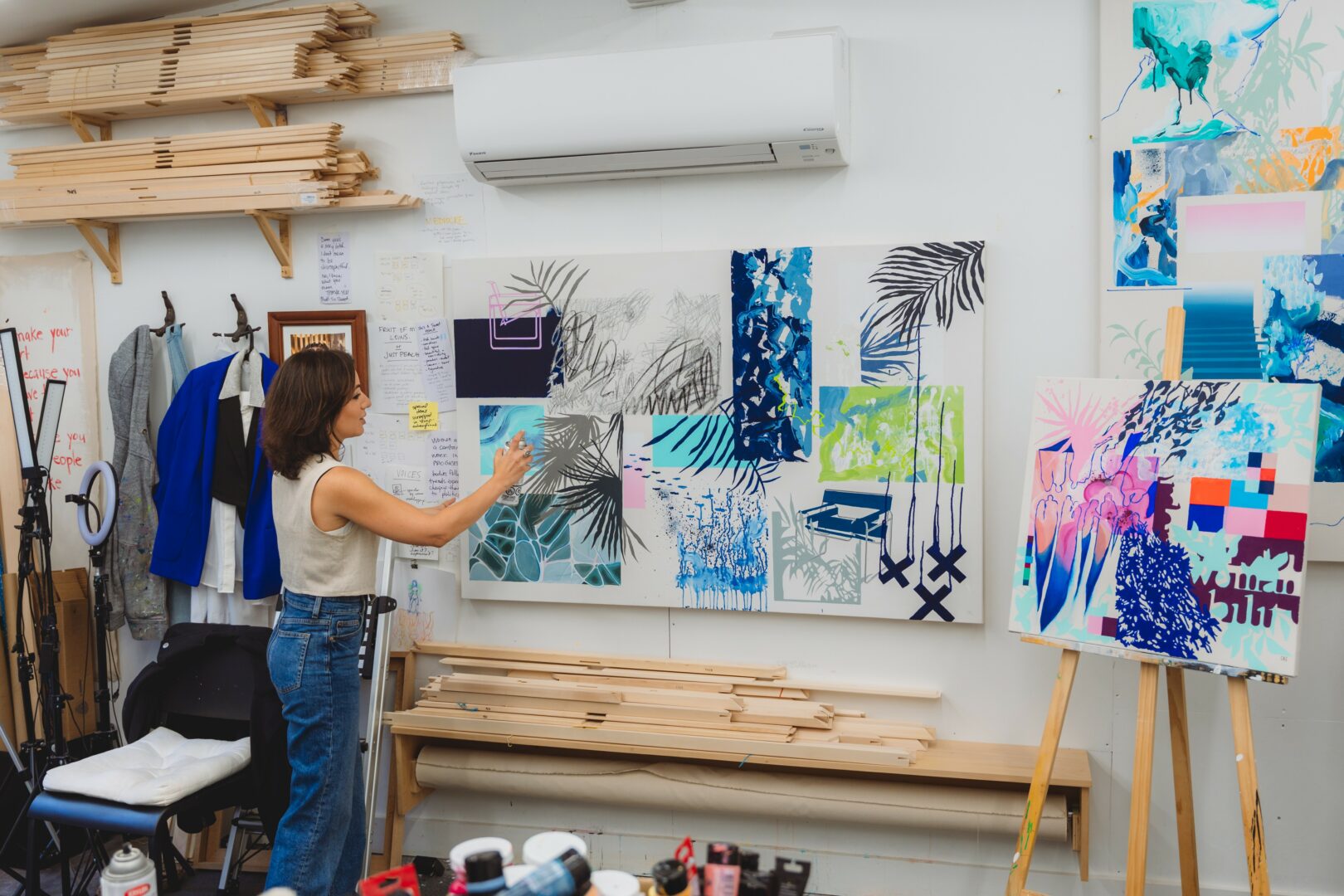
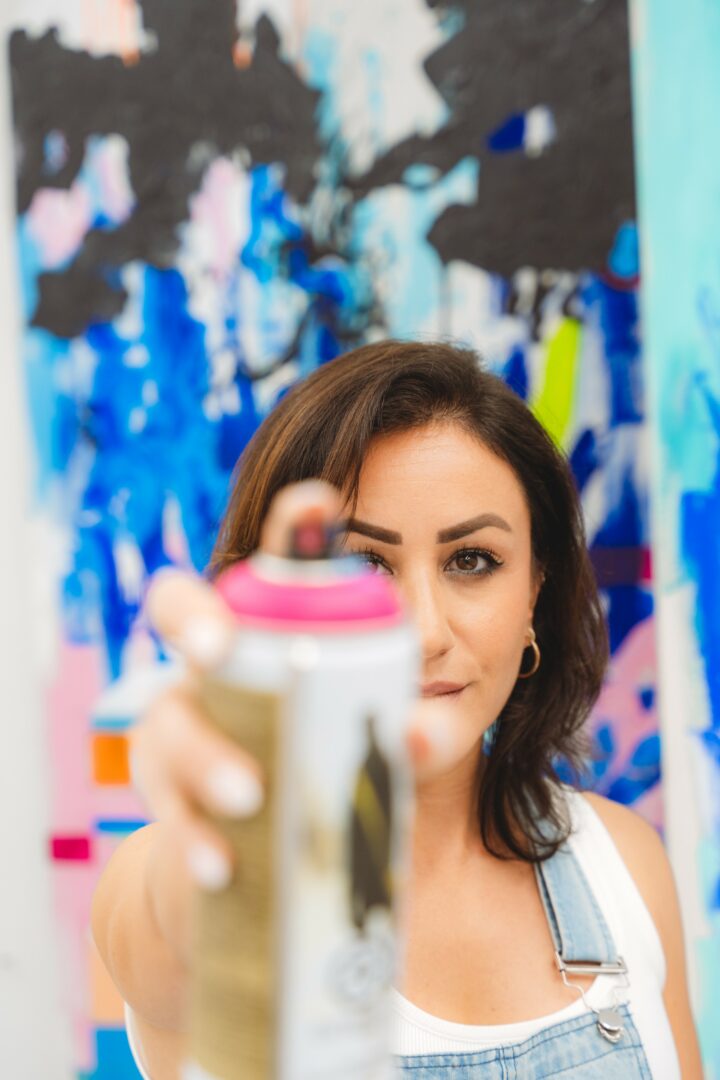
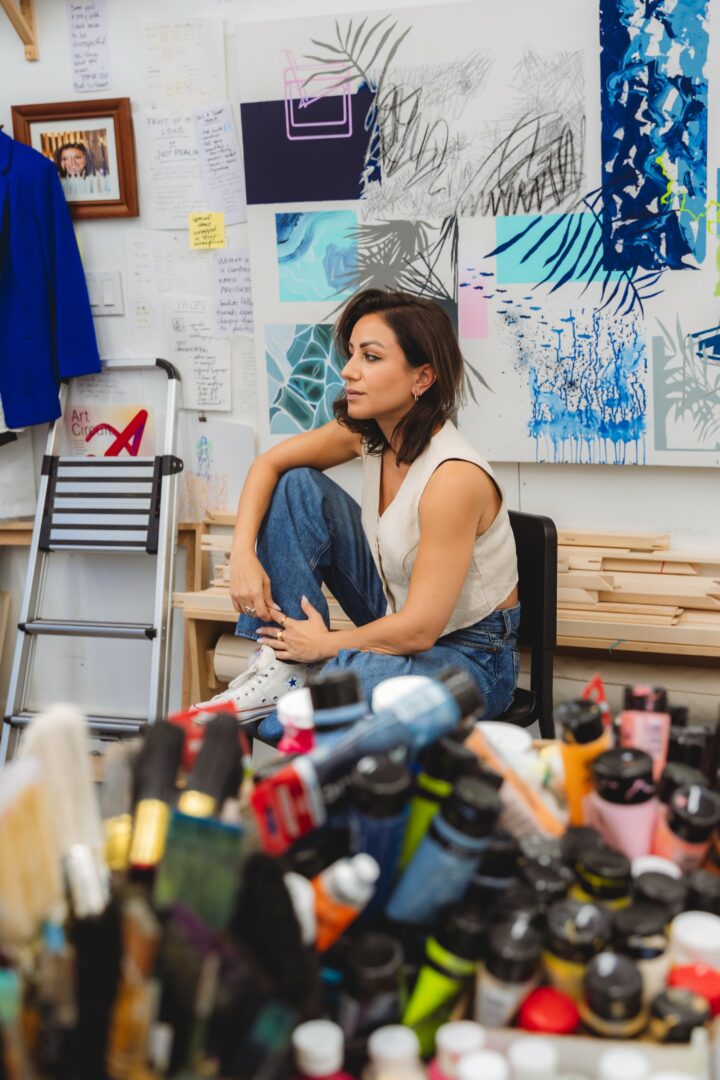
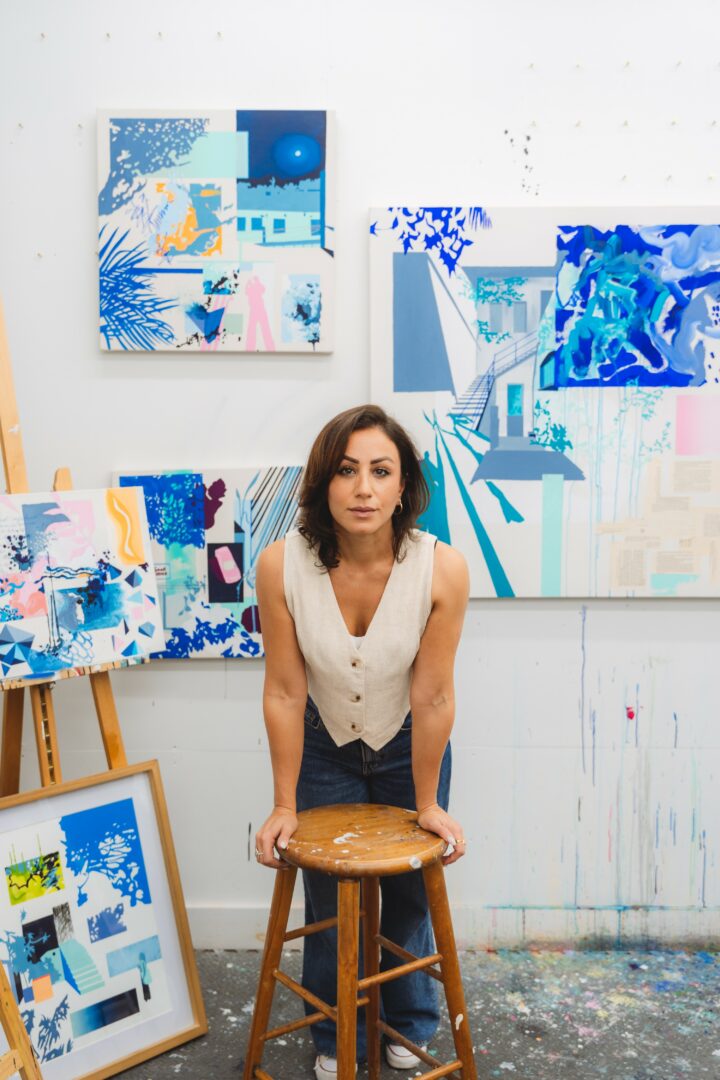
Image Credits
Erika Matkovich of Matko Photo – all photos provided by her.
so if you or someone you know deserves recognition please let us know here.

